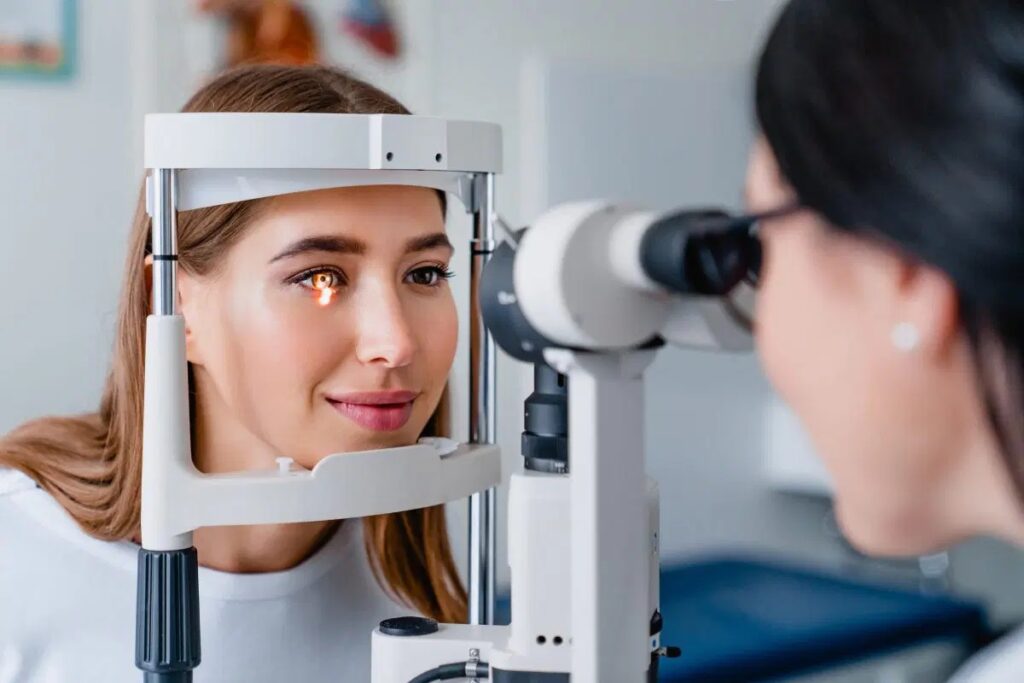Vision disorders are common conditions that affect millions of people worldwide. These disorders can range from mild to severe and can have a significant impact on a person’s quality of life. Understanding and managing these disorders is crucial for maintaining good eye health and ensuring clear vision.
Types of Common Vision Disorders
There are several types of common vision disorders that individuals may encounter. These include:
- Myopia (Nearsightedness): Myopia is a condition where individuals have difficulty seeing objects that are far away. It occurs when the shape of the eye causes light rays to focus in front of the retina, rather than directly on it.
- Hyperopia (Farsightedness): Hyperopia is the opposite of myopia, where individuals have difficulty seeing objects that are close to them. It occurs when the shape of the eye causes light rays to focus behind the retina.
- Astigmatism: Astigmatism is a condition that causes blurred or distorted vision due to an irregularly shaped cornea. It can affect both near and distance vision.
- Presbyopia: Presbyopia is an age-related condition that affects individuals over the age of 40. It results in difficulty focusing on close objects due to the natural hardening of the lens in the eye.
- Color Blindness: Color blindness is a genetic condition that affects an individual’s ability to see certain colors. It is more common in males and can range from mild to severe.
Managing Vision Disorders
While vision disorders cannot always be completely cured, they can often be managed effectively with various treatment options. Here are some common management strategies:
- Eyeglasses: Eyeglasses are a common and effective way to manage vision disorders. They can correct refractive errors, such as myopia, hyperopia, and astigmatism, by providing the eye with the necessary lens power to focus light properly onto the retina.
- Contact Lenses: Contact lenses are an alternative to eyeglasses and can provide similar corrective benefits. They are placed directly on the eye and can correct a wide range of vision disorders.
- Refractive Surgery: Refractive surgeries, such as LASIK or PRK, can permanently reshape the cornea to correct vision disorders. These surgeries are typically recommended for individuals with stable vision and meet certain criteria.
- Visual Aids: For individuals with low vision or severe visual impairment, visual aids such as magnifiers, telescopes, or electronic devices can help enhance their remaining vision and improve their daily functioning.
- Regular Eye Exams: Regular eye exams are essential for managing vision disorders. They allow eye care professionals to monitor changes in vision, adjust prescriptions, and detect any underlying eye conditions that may be contributing to the vision disorder.
Preventing Vision Disorders
While not all vision disorders can be prevented, there are steps individuals can take to promote good eye health and reduce the risk of developing certain vision disorders. These include:
- Wearing Protective Eyewear: When engaging in activities that pose a risk of eye injury, such as sports or certain occupations, wearing appropriate protective eyewear can help prevent eye damage.
- Practicing Healthy Habits: Maintaining a healthy lifestyle, including regular exercise, a balanced diet rich in nutrients, and avoiding smoking, can contribute to overall eye health.
- Taking Breaks from Digital Screens: Prolonged exposure to digital screens can strain the eyes and contribute to vision problems. Taking regular breaks and practicing the 20-20-20 rule (looking away from the screen every 20 minutes, for 20 seconds, at an object 20 feet away) can help alleviate eye strain.
- Protecting Eyes from UV Rays: Wearing sunglasses that block harmful UV rays can help protect the eyes from conditions such as cataracts and macular degeneration.
- Scheduling Routine Eye Exams: Regular eye exams, even in the absence of vision problems, can help detect early signs of vision disorders or other eye conditions and allow for prompt treatment.
By understanding and managing common vision disorders, individuals can take proactive steps to maintain good eye health and ensure clear vision. If you are experiencing any vision problems, it is important to consult with an eye care professional for an accurate diagnosis and appropriate treatment.

